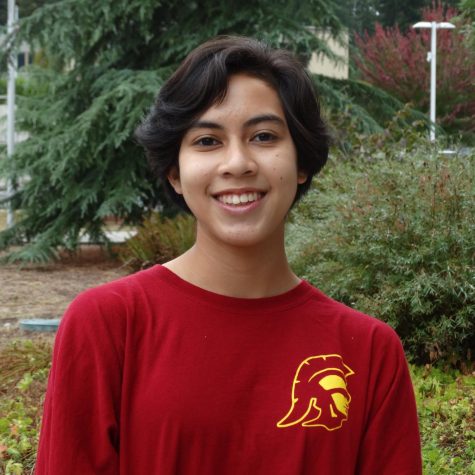Queer History Is American History
June 7, 2022
American history is one of the most essential subjects that we study in school today. Comprehensive knowledge of the past is vital for future generations, as we are urged to learn from the mistakes of our ancestors and understand the origin of significant parts of American culture. However, there is one topic distinctly missing from the majority of curriculums nationwide: LGBTQ history.
You have probably heard of the Stonewall riots or been given the run-down on the AIDS epidemic, but the fact of the matter is that the majority of the LGBTQ community’s triumphs and tribulations have been scrubbed from history curricula. In my U.S. history class, we never discussed Marsha Johnson or Harvey Milk, the Gay Liberation Movement or “Don’t Ask, Don’t Tell.” Even LGBTQ figures who are central to other movements are absent or have their identities omitted; for example, James Baldwin and Bayard Rustin made significant contributions to the Civil Rights Movement, but the reality that they were queer is rarely mentioned.
In fact, California, New Jersey, Colorado, Oregon, Nevada, and Illinois are the only states that mandate the teaching of LGBTQ history in public school curriculums, and the specifics of this are left open to individual school districts—who decide whether to construct a comprehensive curriculum or require the bare minimum. It is frankly pitiful that America continues to ignore the LGBTQ community as if the experiences of millions of people are liable to fade into nonexistence at any given moment.
One vital reason we need instruction on LGBTQ history is to validate the experiences and identities of high school students who are LGBTQ or questioning by acknowledging others with the same struggles. Queer representation is severely lacking in all areas of society, and history classrooms are just one more sector where LGBTQ voices are ignored, discarded, and often, silenced. I know that I would have personally benefited from learning about inspirational queer historical figures in class, considering how venomously I latched onto the ones I found out about of my own accord. These figures often act as role models to LGBTQ kids and encourage them to be more engaged in history.
Also, the deliberate avoidance of any mention of LGBTQ history amplifies the sense of isolation that many queer individuals feel from society. According to The Trevor Project, the world’s largest suicide prevention network for LGBTQ youth, due to the social stigmatization of their identities, LGBTQ youth are more than four times as likely to attempt suicide than their peers. They also found that queer students in gender and sexuality affirming schools had nearly 40 percent lower odds of attempting suicide compared to queer youth in non-affirming schools.
Rather than perpetuating the loneliness and social persecution that LGBTQ students frequently face, schools should be granting them a sense of belonging by spotlighting their community in a positive light. It could literally save lives.
Furthermore, queer history is inherently intertwined with pop culture and the fight for civil rights. To omit queer history from classrooms is to present young people with an incomplete picture of our past, and to discredit the contributions of individuals and groups. It would be so easy to delve into the Gay Liberation Movement alongside coinciding civil rights movements that we already cover, like the Black Power movement and the anti-war movement, but it continues to be excluded.
Lastly, if high school students were taught at this age about the challenges that the LGBTQ community has faced, it would help to humanize and normalize identities beyond that of heterosexual, cisgender individuals, and assist in forging a more accepting society for the diverse spectrum of sexualities and genders that exist.
By neglecting to include LGBTQ history in core curriculum requirements, we are withholding the validation and inspiration that LGBTQ students could find from historical figures who share their experiences, and we are continuing the cycle of ignorance that vilifies and minimizes the LGBTQ community. The time is now to put aside prejudices and encourage inclusivity in history and in our society as a whole.


